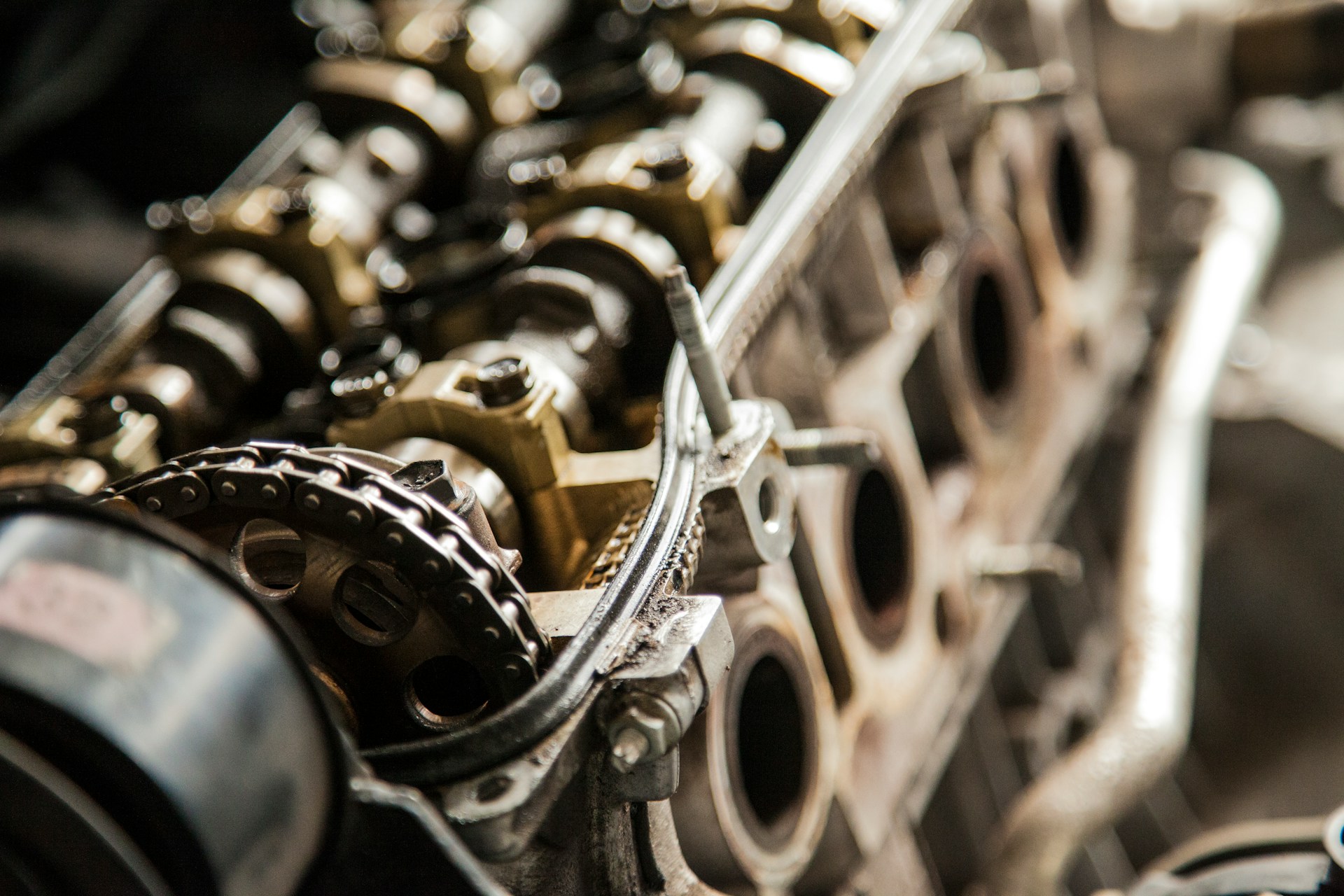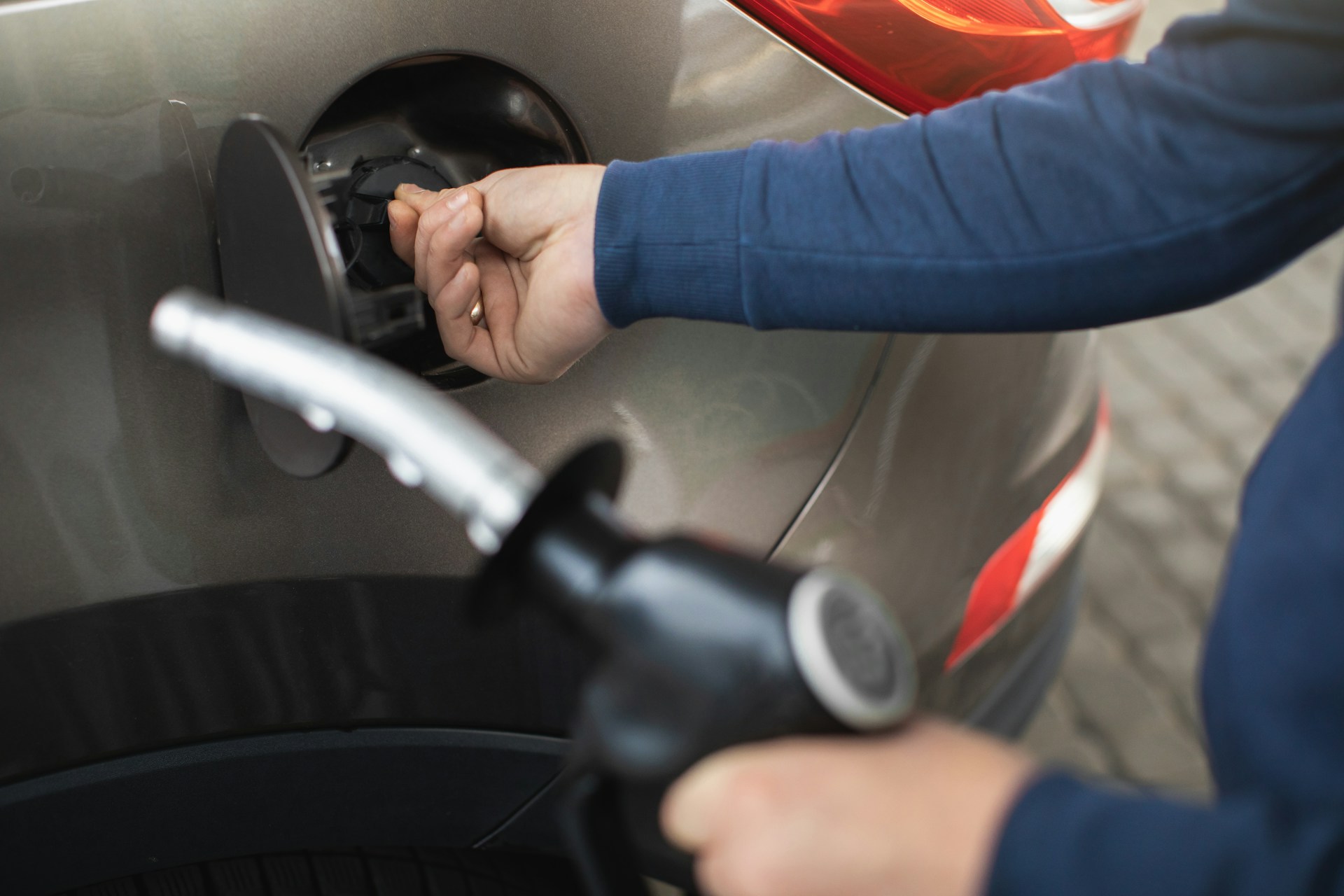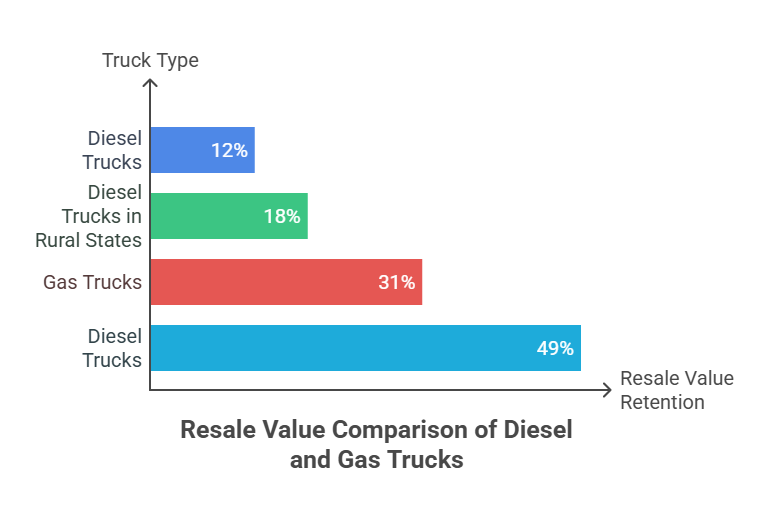Contents
Planning to study diesel vs gas differences? It’s up to you to choose. However, your choice should depend on specific driving habits, budget, and long-term goals. Diesel engines have superior fuel economy and torque. These characteristics make them ideal for heavy-duty applications and long-distance driving. Gas engines provide smoother operation, lower upfront costs, and easier maintenance. Review the following guide to learn the major differences.
How Diesel and Gasoline Engines Work
Both diesel engines and gas engines operate on internal combustion principles. However, they use distinctive ignition methods. Diesel engines rely on compression ignition. Gasoline motors, in turn, use spark ignition.
Diesel engine operation:
- Diesel fuel is injected into hot air inside the cylinder.
- High compression ratio from 14:1 to 23:1.
- No spark plugs required – combustion occurs through compression heating.
- Diesel fuel has a higher energy density than gasoline; it produces more energy per gallon.
- The piston compresses air to extremely high pressures.
Gas engine operation:
- Gas and air mixture is compressed to a lower ratio (8:1 to 12:1).
- Spark plugs create the electrical spark.
- Precise timing controls combustion in each cylinder.
- This fuel burns faster than diesel fuel, allowing higher engine RPMs.

Pros and Cons of Diesel Cars
Modern diesel vehicles have evolved significantly.
Advantages
These engines deliver several compelling benefits:
- 20-30% more efficient compared to gasoline motors.
- More torque at lower RPMs is ideal for towing and hauling heavy loads.
- Longer life expectancy, often reaching over a million miles.
- Higher thermal efficiency converts more energy from fuel into usable power.
- This fuel contains more energy per gallon.
- Excellent for highway driving and long-distance travel.
Disadvantages
These engines come with notable drawbacks:
- Higher upfront purchase costs.
- More expensive maintenance requires qualified technicians.
- This fuel typically costs more per gallon.
- Cold weather starting difficulties without proper preparation.
- More complex emission control systems are prone to expensive repairs.
- Potential for major repairs to emission systems after warranty expires.
According to EPA data, diesel engines typically offer 25-35% better fuel economy than equivalent gas engines.
Pros and Cons of Gas Cars
Gas engines remain the most popular choice for passenger vehicles across America.
Advantages
Gasoline engines offer several practical benefits:
- Lower initial purchase costs.
- Widespread availability of gasoline at virtually every gasoline station.
- Quieter, smoother operation with less vibration.
- Easier cold weather starting in most climates.
- Lower maintenance costs and more repair shops available.
- Higher horsepower output for performance-oriented driving.
- Spark plugs and fuel filters are inexpensive to replace.
Disadvantages
Limitations affect long-term ownership:
- Lower fuel efficiency means fewer miles per gallon.
- Less torque production, limiting towing capacity.
- Shorter engine lifespan.
- Higher fuel costs over time due to poor fuel economy.
- Power output decreases significantly with the same amount of fuel.
- Less efficient engines require more gas fuel to travel the same number of miles.
Most Frequent Repair Issues in Gas vs Diesel Vehicles
Understanding common repair problems helps predict long-term ownership expenses. Diesel engines face different challenges than gasoline motors due to their design complexity. Modern diesel models require sophisticated emission control systems that can fail. Gas engines deal with different issues related to their ignition systems and fuel delivery. Both engine types have specific maintenance needs that affect reliability. When purchasing used vehicles, a VIN decoder can help identify the engine type and potential issues.
| Repair Category | Diesel Engine Issues | Gas Engine Issues |
| Fuel System | Fuel filters clog frequently, and injector problems | Fuel pump failures, fuel injection issues |
| Ignition | No ignition coil issues | Ignition coil problems, timing issues |
| Emissions | DPF regeneration, EGR valve failures | Catalytic converter, oxygen sensor issues |
| Engine Components | Turbocharger repairs, glow plug replacement | Timing belt, valve adjustments |
| Cooling System | Radiator scaling, coolant contamination | Thermostat, water pump failures |
| Power Systems | Turbo issues affecting power delivery | Fuel injection problems reducing power output |
| Fuel Delivery | Complex multi-cylinder fuel injection systems | Simpler cylinder fuel delivery systems |
SCA studies show diesel vehicles typically require 15-20% higher maintenance expenses than comparable gas vehicles over their first 100,000 miles.
Fuel Economy and Long-Term Costs

Fuel costs represent a significant portion of vehicle ownership expenses. Diesel fuel historically costs more than gasoline. However, diesel engines deliver better fuel economy. The break-even point depends on annual miles and driving patterns. Diesel vehicles often prove more efficient for high-mileage drivers.
Cost comparison Factors:
- Diesel fuel typically costs $0.20-0.50 more per gallon than regular gasoline.
- Diesel engines achieve 25-35% better miles efficiency than equivalent gasoline motors.
- Higher expenses for diesel vehicles offset some fuel savings in the long run.
- The break-even point usually occurs around 15,000-20,000 miles annually.
- Commercial trucks and fleet vehicles benefit most from diesel efficiency.
- Diesel vs gas prices fluctuate based on crude oil refining costs.
- Average car mileage improvements favor diesel for high-mileage drivers.
- Consider your car for your business needs when evaluating fuel costs.
Resale Value and Market Demand
Diesel vehicles often maintain stronger resale values due to their durability and fuel efficiency. However, market demand varies significantly by vehicle type and region. Diesel trucks command premium trade-in values compared to gasoline alternatives. When shopping for a used car for a new driver, consider that diesel models may have higher maintenance complexity. Many trucks with diesel engines hold their value better than similar trucks with gas engines.
According to SCA auction data, diesel trucks retain 12% more value after 5 years than gas models. An 8-year-old diesel F-250 sells for over $5,000 more than its gas counterpart. Nearly half of high-mileage diesel trucks are still rated “good,” versus just 31% for gas. In rural states like Iowa and Nebraska, diesel trade-ins earn up to 18% more.

Gas vs Diesel Cars in Cold Weather
Cold weather performance creates distinct challenges for both engine types. Diesel fuel can gel in extremely cold temperatures, while gas engines may struggle with icing.
| Temperature Range | Diesel Performance | Gas Performance |
| Above 32°F | Normal operation | Normal operation |
| 10°F to 32°F | May need glow plug warm-up | Quick starting, normal operation |
| Below 10°F | Requires winter fuel blend | May need block heater assistance |
| Below -10°F | Gel prevention additives are essential | Potential battery/starting issues |
| Extreme Cold | Engine block heaters are recommended | Cold-weather oil recommended |
Different vehicles may require different cold-weather preparations. Trucks and commercial vehicles often need additional cold-weather equipment. Proper wheel and tire maintenance becomes crucial for all vehicles during cold weather months.
Diesel and Gas Cars in the Post-EV Transition Era
Electric vehicles are reshaping automotive preferences. Nonetheless, diesel and gas engines will remain relevant for decades. Many trucks and heavy-duty vehicles still rely on diesel power for maximum efficiency.
The transition timeline varies by region and application. Diesel trucks maintain market share longer than passenger cars due to infrastructure and range requirements. Fleet vehicles and commercial trucks continue to benefit from diesel efficiency advantages.
Common Myths About Diesel and Gas Cars
Misconceptions about engines persist despite technological advances. Modern diesel engines run much cleaner than older models, while gasoline engines have become more efficient.
Debunked Myths:
- Myth: All diesel cars are loud and smoky – they run quietly and cleanly.
- Myth: Diesel fuel is always more expensive – prices fluctuate.
- Myth: Gas and diesel engines cannot provide more power for towing – many gasoline and diesel engines provide adequate towing power.
- Myth: Diesel automobiles require constant warm-up – modern systems start quickly in most weather.
- Myth: Diesel engines cannot run on alternative fuels – biodiesel options exist.
- Myth: All diesel vehicles get the same amount of better fuel economy regardless of driving style.
- Myth: Diesel cars in the USA are all unreliable – many modern diesel-powered cars perform well.
- Myth: Gas and diesel engines have identical efficiency – a diesel vs gas comparison shows clear differences.
- Myth: All trucks need diesel power – many trucks with gasoline engines provide adequate power.
- Myth: Diesel-powered vehicles always cost more in the long run – efficiency can offset higher prices.
- Myth: Power delivery from gasoline and diesel engines is identical – diesel provides more torque while gas offers more horsepower.
- Myth: Oil changes for gas and diesel engines require the same frequency – diesel engines often need different oil change intervals.
- Myth: Wheels on diesel and gas vehicles require different maintenance – both engine types use similar wheel systems.
SCA quick research fact: 40% of consumers still believe outdated stereotypes about diesel engine performance and emissions.
Summary
The diesel vs gas engines choice should rely on individual needs and priorities. Diesel engines are characterized by fuel efficiency, torque, and longevity. Gasoline motors are cheaper in maintenance and operate more smoothly. Intending to choose your next vehicle? Review the main diesel and gas differences and consider your driving patterns, budget, and long-term goals.
FAQ
Why Are Diesel Engines So Loud?
Combustion characteristics and a higher compression ratio cause more noise. The rapid pressure rise during combustion creates distinctive sounds.
Higher compression ratio creates more mechanical stress and noise.
Combustion occurs more rapidly than in gasoline engines.
Diesel fuel ignition produces sharper pressure spikes.
Engine block and components must be heavier, transmitting more vibration.
Do Gas Cars Need to Be Driven Regularly?
Yes. Gas vehicles benefit from regular operation. This helps maintain battery charge, prevent fuel degradation, and keep moving parts lubricated. Extended storage can cause various mechanical issues requiring attention.
What Diesel Cars Have a Bad Reputation?
Several models have faced reliability or emission issues that damaged their market reputation. These problems often stem from complex emission control systems or manufacturing defects.
– Volkswagen TDI models due to the emissions scandal.
– BMW models with carbon buildup issues.
– Mercedes automobiles with expensive DPF problems.
– Certain Chevrolet Silverado variants with transmission issues.
Can I Tow More with a Diesel Car Than a Gas One?
Generally, yes. Diesel engines produce more torque at lower RPMs. However, a vehicle’s design and cooling systems also determine towing capacity.
Why Do Gas Engines Rev Higher Than Diesel Engines?
Gas motors can achieve higher RPMs. Diesel engines prioritize torque over high-RPM power delivery.
Gas burns faster, allowing quicker combustion cycles.
Gas motors have lighter pistons and connecting rods.
Diesel engines focus on low-end torque production.
Higher compression ratio in diesel engines limits the maximum safe RPM.






